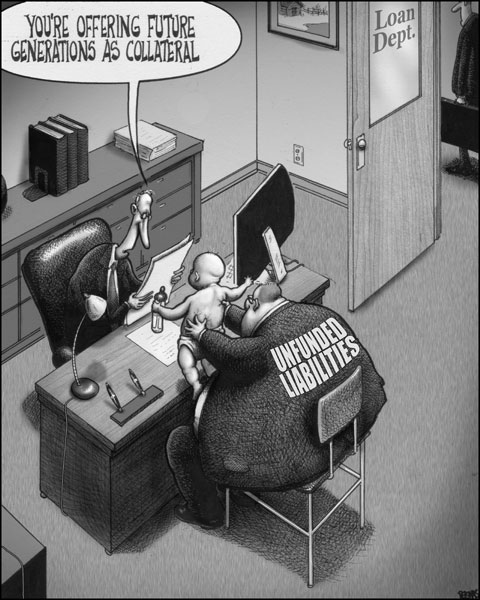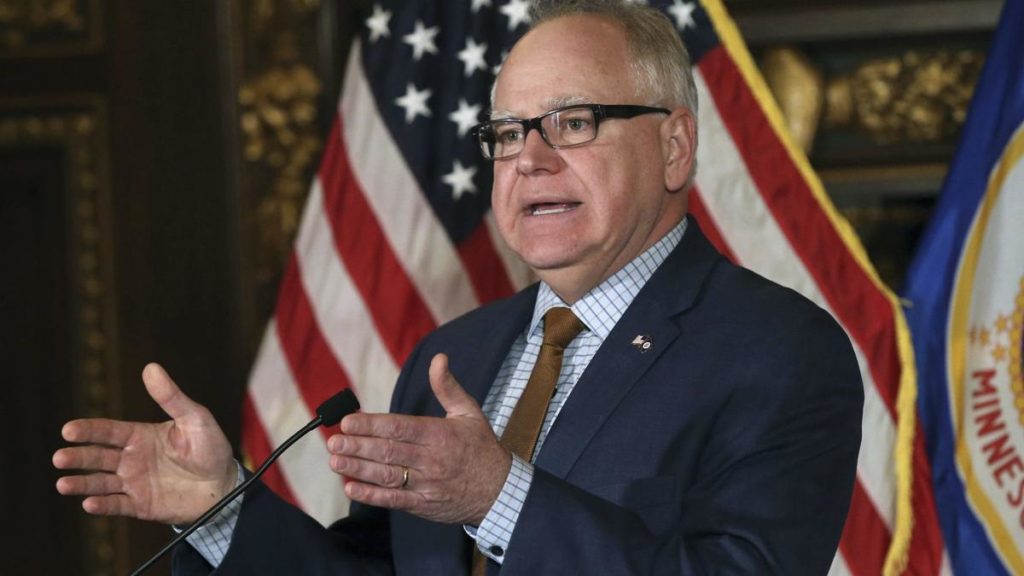Is This Any Way to Run a City’s Schools?
Leaked CTU Proposals Won’t Do Anything to Improve Schools’ Poor Performance

Big Labor Politicians’ Rendezvous With Reality – – ‘What’s Good Policy in Bad Times Is Good Policy in Good Times’
The current nationwide crisis brought about by the coronavirus pandemic and political efforts to control it has put into particularly stark relief how union monopoly bargaining in the government sector puts additional, and unnecessary, strains on public finances.
In desperate bids to continue providing vital public services as tax revenues plummet due to lockdowns in their jurisdictions of all “nonessential” businesses, many politicians who are normally allied with Big Labor have invoked emergency powers to curtail union bosses’ special privileges.
Union-label politicians like Minnesota Gov. Tim Walz (D) have justified their rollbacks of monopolistic government unionism by citing the extraordinary hardships their constituents are now experiencing.
But Mr. Walz and others ignore the obvious question their recent actions raise:
If granting Big Labor inordinate power to determine how public servants are compensated and managed is a very bad idea during difficult times, why is it a good idea the rest of the time?
Monopoly Bargaining Blocks Agencies From ‘Efficiently’ Deploying Workers

On March 17, one week after declaring a state of emergency in response to the coronavirus, Mr. Walz issued an executive order concerning Minnesota’s 50,000 executive branch employees.
In addition to granting extended paid leave to employees with K-12-aged children whose schools were being shut down, the order empowered agency heads to circumvent key provisions in union contracts they had forged with government union bosses who wield monopoly-bargaining power over Minnesota civil servants.
As Mr. Walz explained, he issued Emergency Executive Order 20-07 in order to “protect the health and safety of Minnesotans” and “minimize the impact of the peacetime emergency” on government operations.
To fulfill these objectives, he continued, state agencies must have the “flexibility to hire staff, schedule, assign, and reassign employees without adherence to existing
limitations in [monopolistic] collective bargaining agreements” and memoranda of understanding with government union bosses.
The order is necessary because deals cut with government union chiefs “present barriers to the needs of state agencies to efficiently and effectively mobilize and deploy their workforce during this peacetime emergency.”
National Right to Work Committee President Mark Mix pointed out that a union-label politician like Tim Walz would never have taken such a step except out of desperation:
“In 2018, Mr. Walz won the Minnesota governorship with ample cash and forced dues-fueled ‘in kind’ support from union bosses.
“He would only risk losing Big Labor’s help in achieving his future political ambitions by temporarily limiting government union bosses’ monopoly-bargaining power if he believed he had no choice.
“Similar emergency moves are being made across the country this year.
“For example, at the end of March, Las Vegas’ Clark County, a union-boss stronghold, ‘suspended its union contract’ with over 9,000 health-care employees, according to journalist Mike Elk. A few days later, Clark County politicians ‘suspended contracts with 11 different unions in Las Vegas.
“Around the same time, Louisville, Ky., Mayor Greg Fischer (D), first elected a decade ago with government union bosses’ support, pushed through an emergency ordinance allowing him to suspend deals over public servants’ pay, benefits, and work rules cut between the city and government union bosses.”
The ‘Temporary Laws . . . Demonstrate the Impropriety’ Of the ‘General System’
“Tim Walz and other politicians who acted similarly this spring,” continued Mr. Mix, “have tried to tamp down Big Labor discontent by emphasizing their moves are only temporary.
“But why?
“If government-sector union monopoly bargaining hampers public officials’ ability to respond effectively to an emergency, it stands to reason that it also impedes the provision of effective government services at a reasonable cost in ‘normal’ times as well.”
Roughly two-and-a-half centuries ago, in his Wealth of Nations, pathbreaking free-market economist Adam Smith exposed the immorality of laws limiting the availability of grain imposed by Britain’s King Charles II by pointing to proponents’ willingness to suspend them in times of famine:
“The temporary laws . . . , expedients to which Great Britain has been obliged so frequently to have recourse, sufficiently demonstrate the impropriety of the general system.
“Had that system been good, she would not so frequently have been reduced to the necessity of departing from it.”
“What’s good policy in bad times is good policy in good times,” said Mr. Mix.
Committee’s Goal: Rescind, Rather Than Just Suspend, Union Monopoly Powers
“That’s why the consistent goal of the National Right to Work Committee has been to rescind current laws handing monopoly powers to union bosses, and to block the passage of new monopoly-bargaining laws,” continued Mr. Mix.
“Even in good economic times, government-sector monopoly unionism routinely results in greater debt burdens, higher taxes, and inferior public services. In bad times, the impact can be disastrous.
“Of course, entrenched as monopolistic unionism is in federal labor law and the laws of most states, it is never easy to roll it back. But in recent years the Committee has helped pro-Right to Work citizens make modest, but significant progress on this front.
“Early this year, for example, South Dakota Gov. Kristi Noem [R] signed a law protecting faculty and other employees at six state university campuses and two branch campuses from Big Labor domination.
“The Committee and our members are determined to build on these successes. And, whether they admit it or not, Tim Walz and other union-label politicians have just demonstrated through their actions that they know we’re right.”

Leaked CTU Proposals Won’t Do Anything to Improve Schools’ Poor Performance

Wherever Big Labor wields the power to collect forced union dues, union bosses funnel a large share of the confiscated money into efforts to elect and reelect business-bashing politicians. Employment growth tends to lag as a consequence.

Members Insist They Keep Pro-Right to Work Campaign Promises